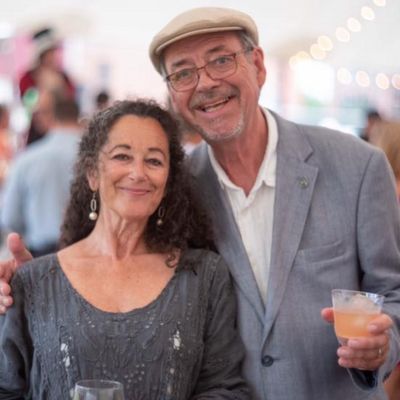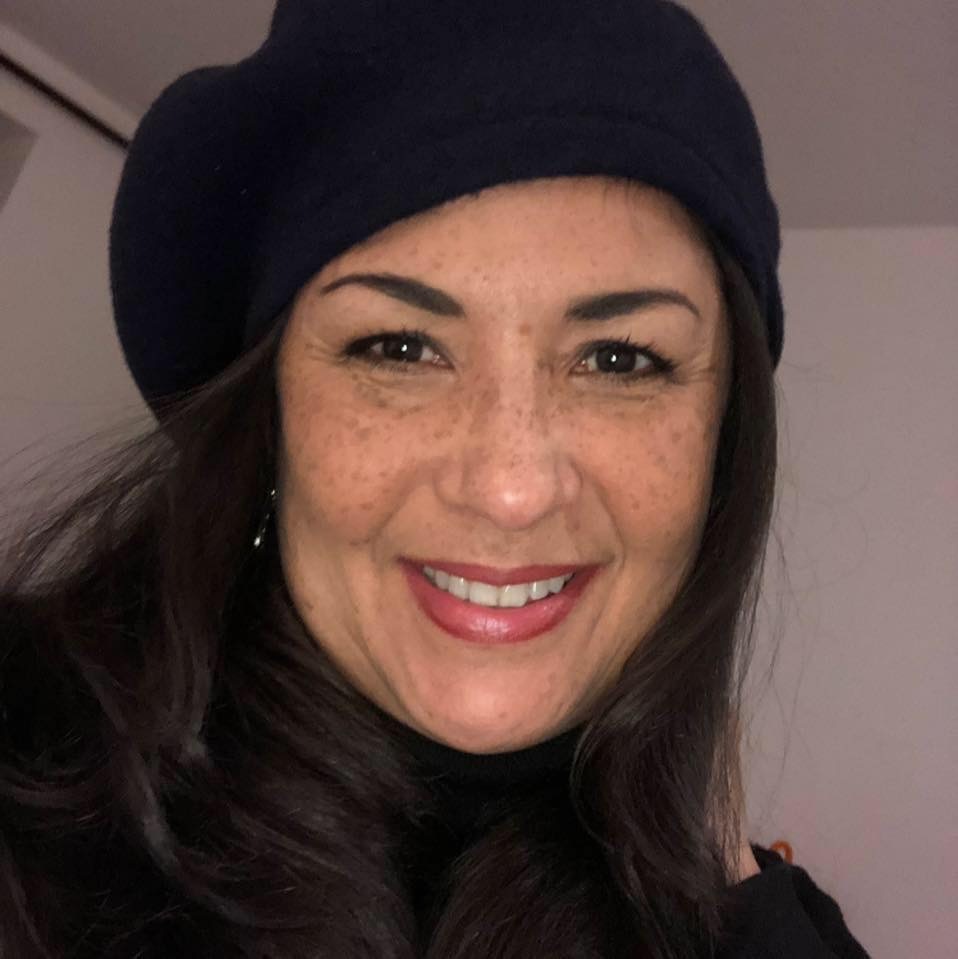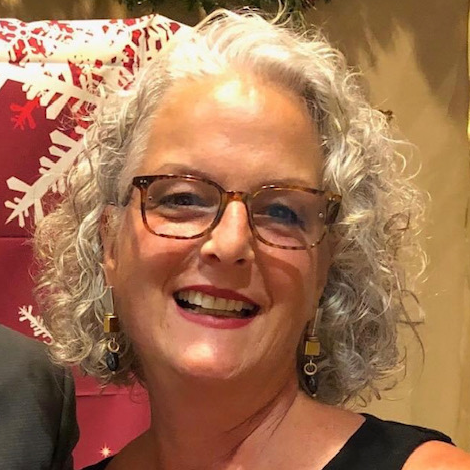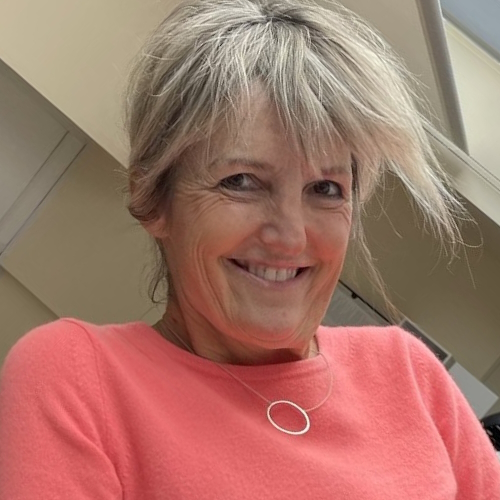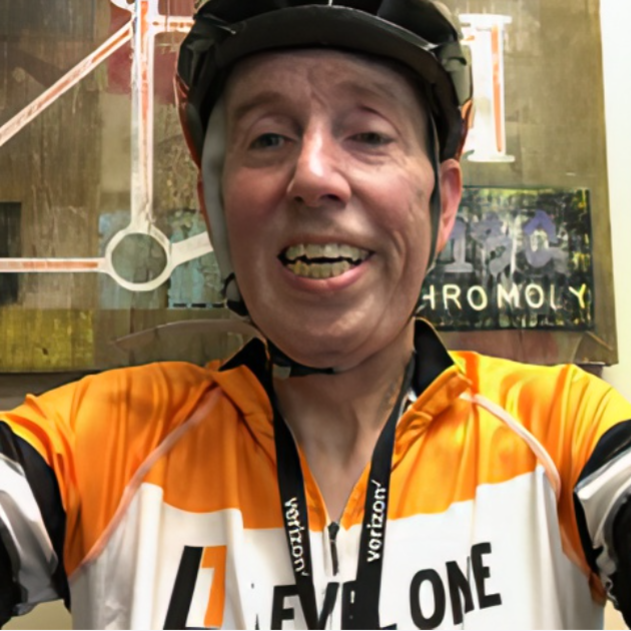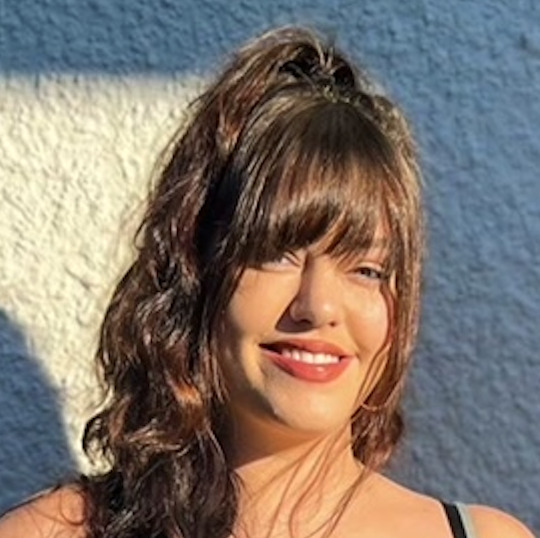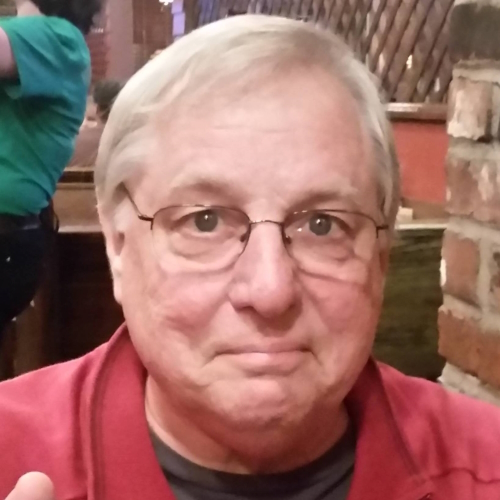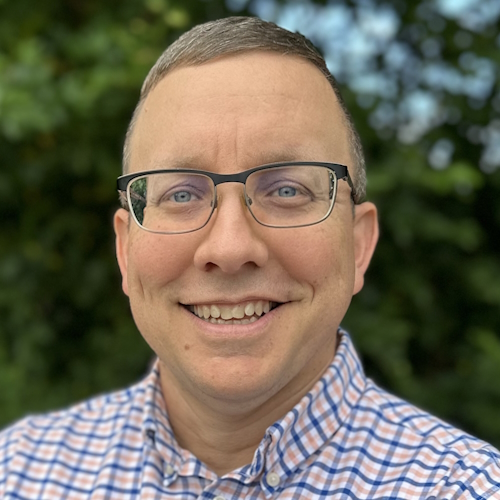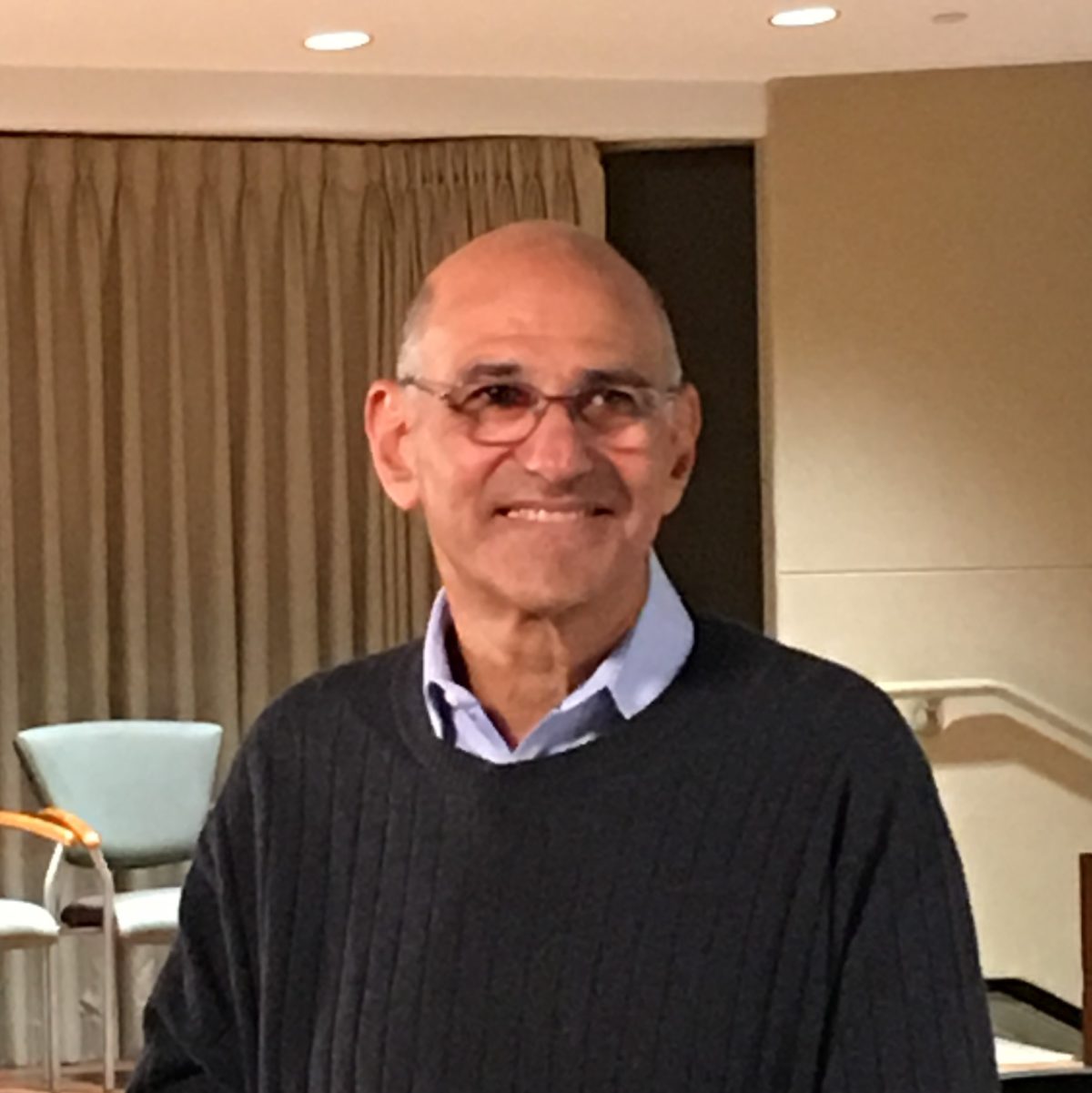Joseph’s Myelofibrosis Story
Interviewed by: Alexis Moberger
Edited by: Katrina Villareal
Joseph, a 76-year-old man who maintains an active lifestyle, shares his journey with myelofibrosis, a rare bone marrow cancer.
Initially unaware of his condition, his low hemoglobin levels prompted a visit to a hematologist and a gastroenterologist, which eventually led to a hospital admission when a nurse noticed that he was symptomatic.
After his oncologist diagnosed him with myelofibrosis, he found out that there was no cure. Hesitant about undergoing a transplant, Joseph explored alternative options, eventually joining a clinical trial at Mount Sinai. The trial, which involved the drug pacritinib, became a vital part of his treatment plan.
Despite initial challenges, Joseph’s health started to improve. His hemoglobin levels stabilized and he found success on the clinical trial. The treatment being studied was pacritinib, later known as VONJO, which later received FDA approval.
Throughout his journey, Joseph experienced changes in spleen size and fluctuations in appetite. Despite these challenges, his hemoglobin and platelet levels improved significantly.
Joseph emphasizes the importance of seeking specialized medical care, encouraging others to research and choose healthcare providers wisely, and stressing the importance of self-advocacy and education in navigating medical challenges.
In addition to Joseph’s narrative, The Patient Story offers a diverse collection of myeloproliferative neoplasm (MPN) stories. These empowering stories provide real-life experiences, valuable insights, and perspectives on symptoms, diagnosis, and treatment options for cancer.
- Name: Joseph C.
- Diagnosis:
- Myelofibrosis
- Initial Symptoms:
- None; caught at routine blood work
- Treatment:
- Clinical trial: VONJO (pacritinib)
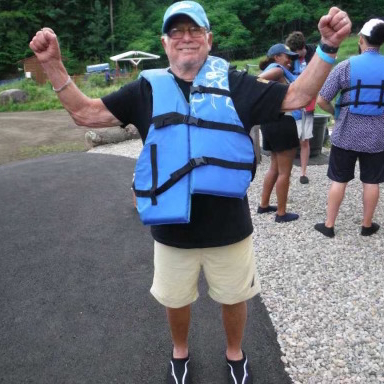
Introduction
I’m 76 years old. I go to the gym seven days a week. I ride a bicycle for two hours every day then I come home.
I’ve always run and walked my whole life. I’ve been in sports for decades. I’ve played football, basketball, tennis, and ran track. I do all of these things to keep myself active.
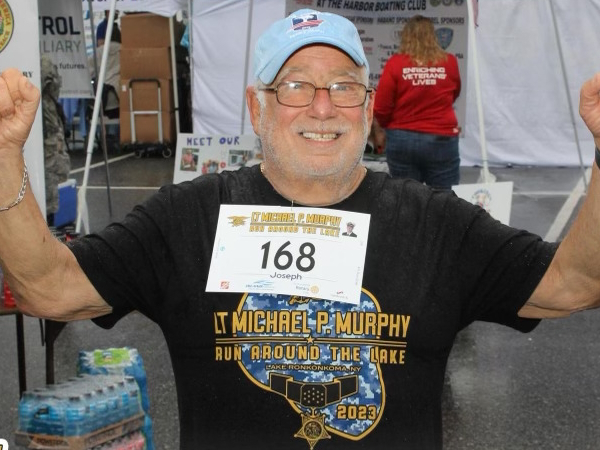
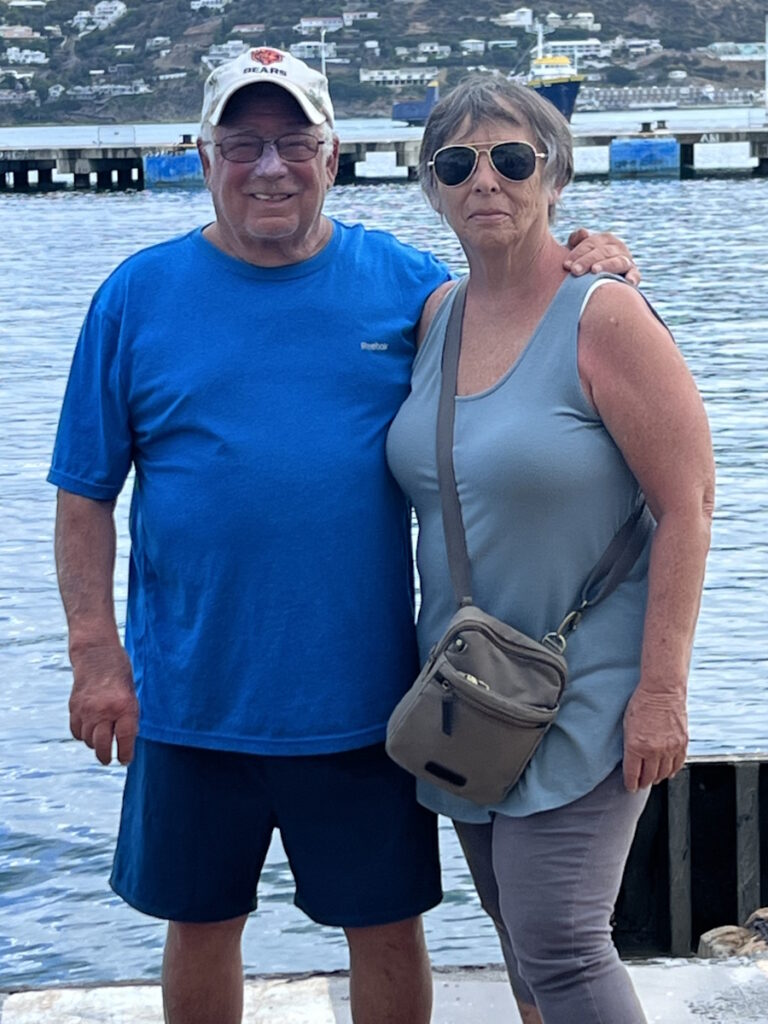
Pre-diagnosis
Initial Symptoms
When we came back from a vacation, I got a call from my primary physician who said my hemoglobin was 6. I didn’t know what that meant. He told me to make an appointment with a hematologist and go to a gastroenterologist to see if I could get a colonoscopy.
At the appointment with the gastroenterologist, the nurse looked at me and said, “You look symptomatic. I think you should go to the hospital.”
I went home, picked up my wife, and went to the hospital. By the time I got admitted and got into a bed, my hemoglobin was 5. They gave me a couple of pints of blood and I stayed overnight.
Diagnosis
Getting the Official Diagnosis
I met Dr. Samir Patel of New York Cancer & Blood Specialists. He told me I had myelofibrosis. When I went home, I looked it up and found out that there was no cure.
When I went back to see him, he said, “Make an appointment to go to Mount Sinai Hospital in Manhattan and talk to a surgeon regarding a transplant.”
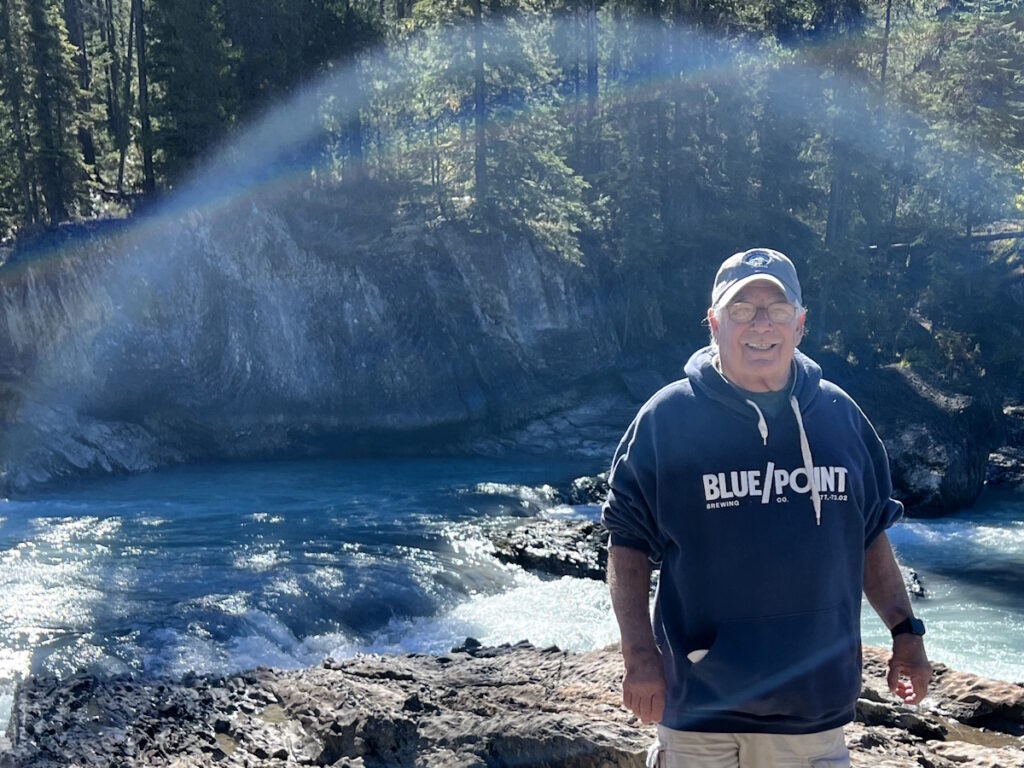
They told me I was in good enough shape to do the transplant, but I didn’t want to put my family through all of that.

Treatment
Discussing Treatment Options
I shied away from a transplant. I knew a little bit about it so it wasn’t something I wanted to entertain. I asked him, “What’s the alternative?” He said, “Another part of the team has a trial program that you can try.”
I told myself that the trial program is the nucleus. I’m going to roll the dice and see what happens. I don’t know what the answer will be.
They told me I was in good enough shape to do the transplant, but I didn’t want to put my family through all of that.
We were going to Mount Sinai once every three months and it was a headache. If we had to do that 3 or 4 times a week, I don’t know what would’ve happened. It’s too much pressure.
I know from my experience that a trial is what it says, it’s a trial. They don’t know what the answer is going to be.
Enrolling in a Clinical Trial
I saw Dr. John Mascarenhas, who introduced me to the trial. He told me that this is about the third trial they’ve had so far and 70% of the people do well. I didn’t ask how the other 30% do, but I said, “I’m going to try it.”
He asked me a bunch of questions, which was always interesting because they asked me these questions all the time. Do you have bone pain? Do you have sweats? Do you have this? Do you have that? I said, “I don’t have anything. If you didn’t tell me I was sick, I would just think I’m old.”
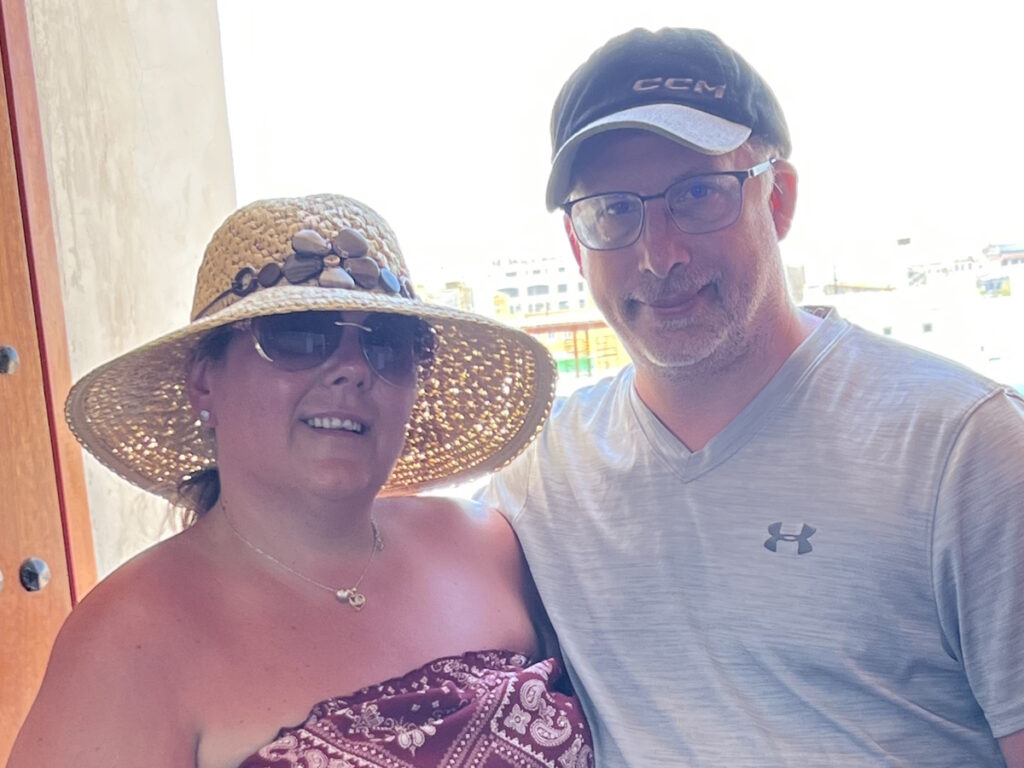
The drug seems to be working for 70%, is what he told me and 70% is pretty good if you ask me.
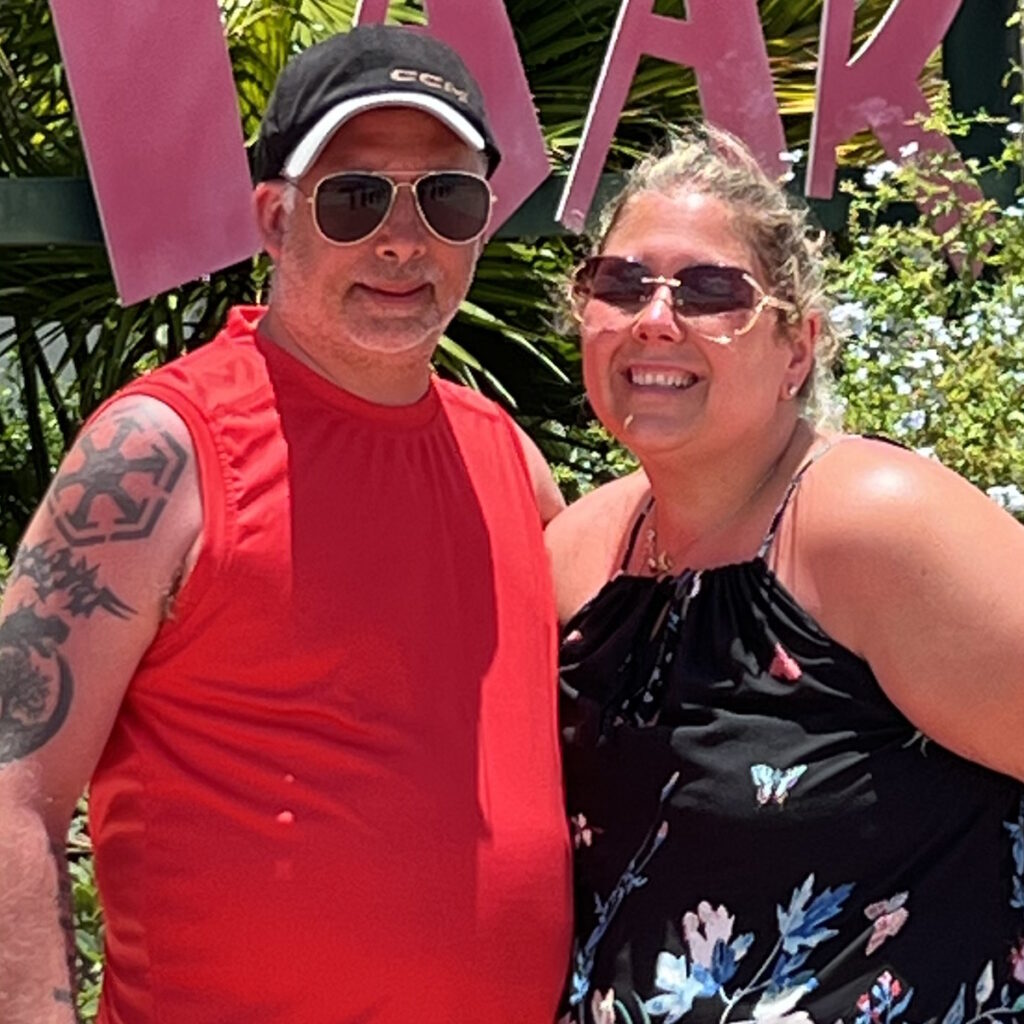
Deciding to Join a Clinical Trial
I know from my experience that a trial is what it says, it’s a trial. They don’t know what the answer is going to be. They’re going to take the results and compare it at the end. That’s what it means to me.
I said, “The transplant is not the answer. I don’t want that. What other option is there?” They said this is the option and this is what I did.
The paperwork was pretty much done by Mount Sinai. I had to sign at the end. I don’t remember what the details were.
Everybody’s going to be different. The trial is a trial. The drug seems to be working for 70%, is what he told me and 70% is pretty good if you ask me.
Joining the Pacritinib Clinical Trial
I started to do the trial. For the first year or so, the medicine was working but not working. I was producing red blood cells, but they weren’t staying.
I would get a transfusion and my hemoglobin would go up maybe one point per pint. If I went there with a 7, I come out and have a 10, but in 10 days, I’d be back to 7. That was what happened for a while.
All of a sudden, I had my last transfusion on September 15, 2021. Things started to kick in. My hemoglobin is now 14.9 and has been pretty steady between 13 and 14. Dr. Mascarenhas said I was famous in Mount Sinai and was like a poster child.
Pacritinib Receives FDA Approval
He told me the trial was going to end in January 2023. The drug got approved and is now known as VONJO. Everything was great. “But as of January 23rd, you’re off the trial,” he said.

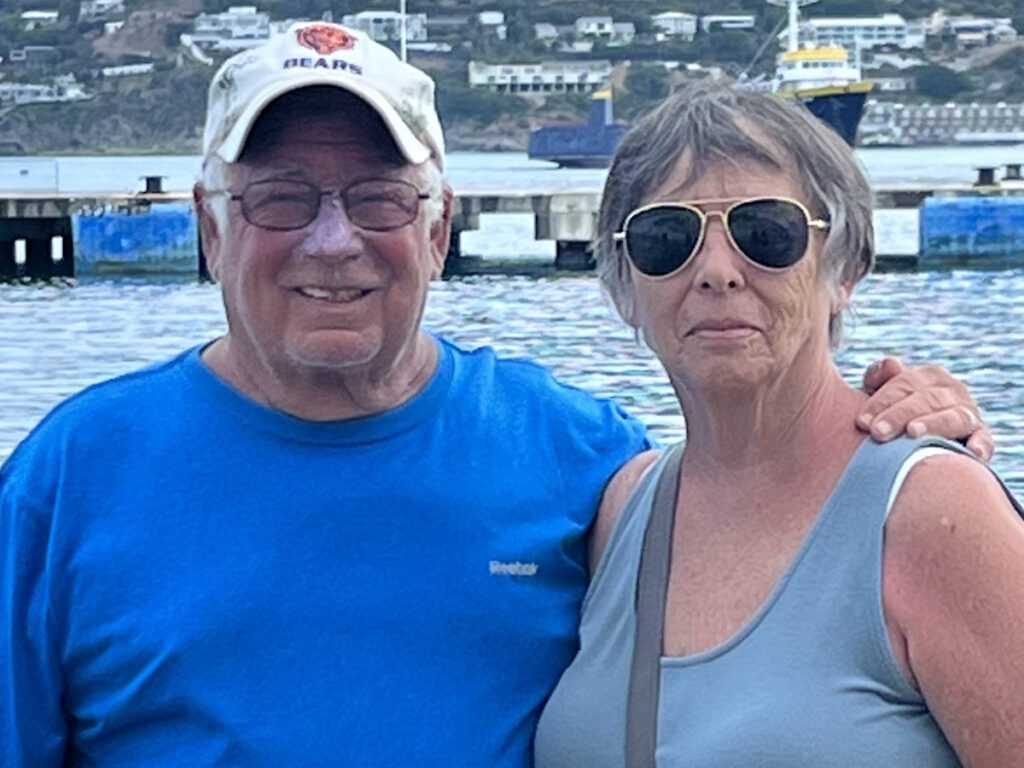
Getting Financial Support for Treatment
I didn’t know how much the drug cost. I found out that it costs $22,000 a month. I got in touch with Mount Sinai and they gave me a grant.
Then I got in touch with the drug company and I qualified for an exemption. In case the grant isn’t good, the drug company will pick up the rest.
I’m under the assumption it’s for the rest of my life. This pill is keeping me alive so to speak.
Side Effects
For whatever reason, at one point in time, my spleen was getting bigger. I took this and then it shrunk by 65%. I don’t feel any different anywhere. He said I didn’t have to do anything. Maybe it’s the medicine. I couldn’t tell you, honestly. They told me it was large and then it shrunk.
They asked me about my food intake. I said it depends. Even up to now, some food tastes good and some food doesn’t taste so great to me. My appetite is good if it’s something that tastes good. If it’s something that I’ve had before and it was good then, sometimes it’s not so good now so I don’t eat as much.
I have a big appetite, but there are days when it doesn’t interest me to eat anything. It’s hard to say. Give me Italian food, I’ll sit and eat all day. Give me something else, maybe not.
With the hemoglobin and the platelets, my hemoglobin was at 5 and my platelets were at 2. Now my hemoglobin is at 14.9 and my platelets were 186 the last time I checked. But the platelets fluctuate. They’re not as steady as hemoglobin for some reason.

For whatever reason, at one point in time, my spleen was getting bigger. I took [pacritinib] and then it shrunk by 65%.
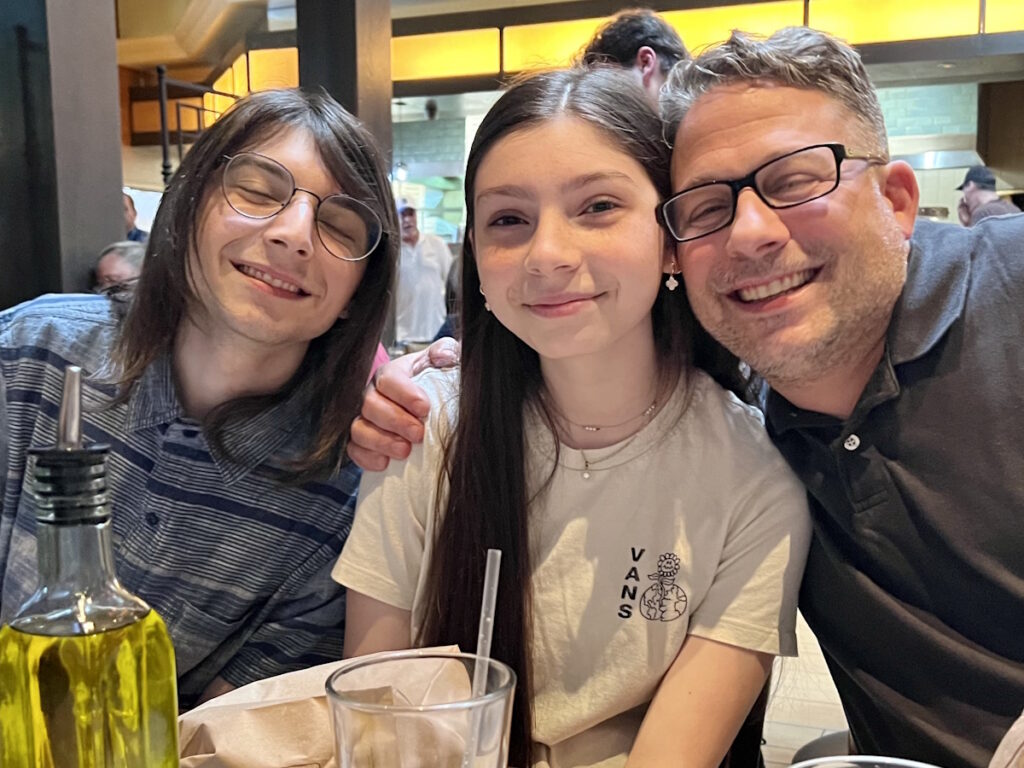
Being on Pacritinib Long-Term
This is my third year on pacritinib. They haven’t said, but I’m under the assumption it’s for the rest of my life. This pill is keeping me alive so to speak. My red blood cells have been pretty steady for almost a year and a half now so I’m thinking that the pill is the answer.
If I needed to have a transplant, I probably would have done it.
Importance of Seeing a Specialist
My primary care physician sent me to see an oncologist. I picked somebody based on somebody else’s experience who gave me some feedback as to where to go.
The oncologist and I discussed the scenario. He said, “You need to speak to a surgeon who does transplants,” and laid it on the line that this is what you need to do if you want to stay alive.
When I went and spoke to the surgeon, who was part of Dr. Mascarenhas’ team, he gave me a booklet to read and told me how the transplant works.
If I needed to have a transplant, I probably would have done it, but they gave me the clinical trial option and I decided to take it.
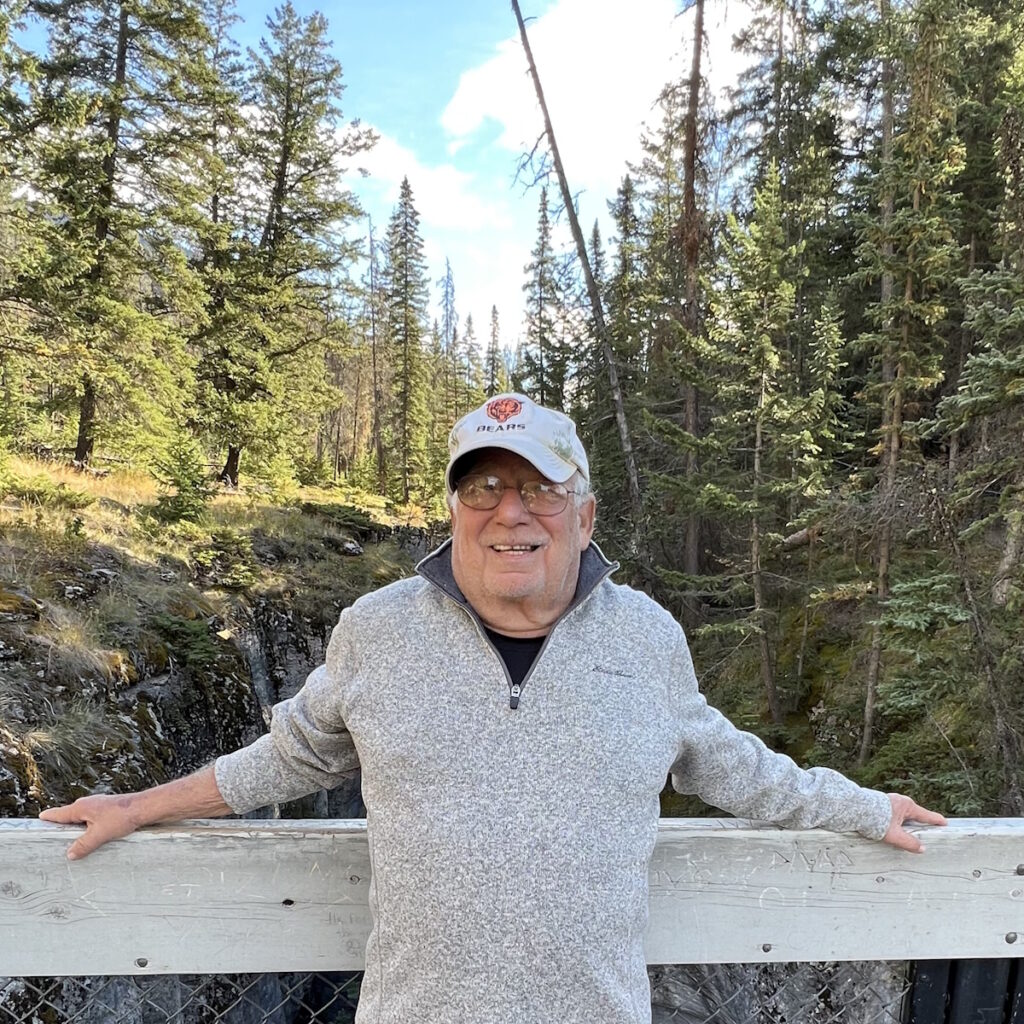
Be educated with what you have.
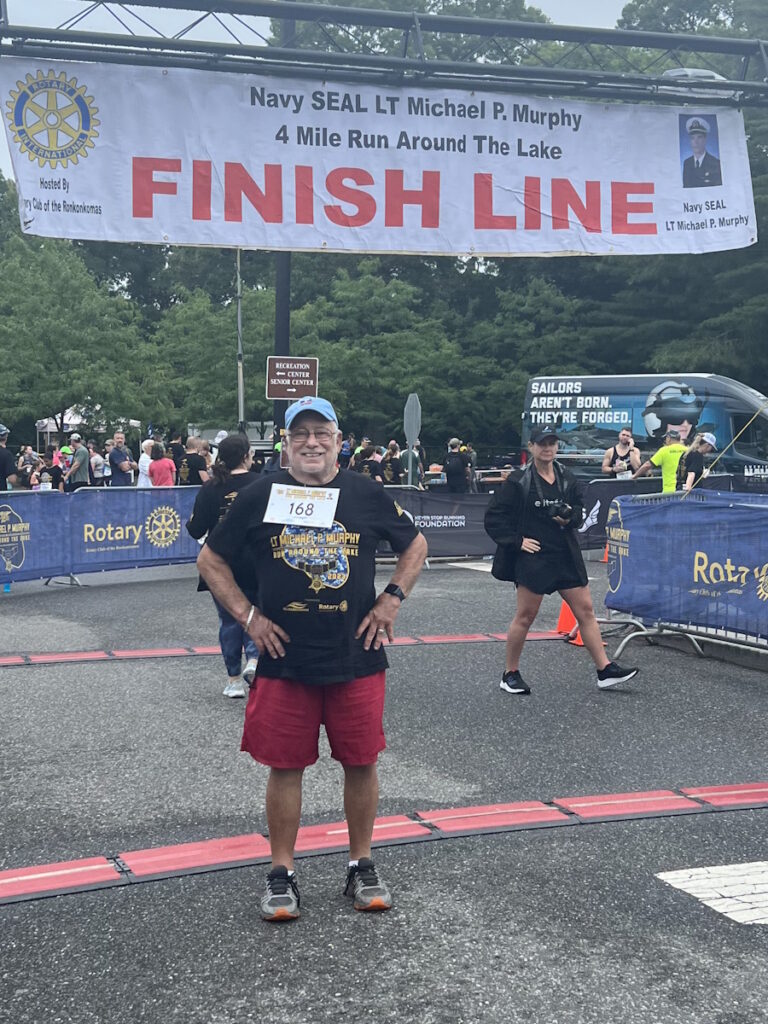
Being Physically Active
I do a Marcum Workplace run through my employer. I’ve also done a run for breast cancer. My wife had breast cancer so I’m all for the walk.
I’ve done a Michael Murphy Run in Long Island. I’ve done that for the last eight years. He was in the Navy and passed away in Afghanistan. He’s from our high school. Both sons went there and that place is loaded with Michael Murphy memorabilia.
I don’t run; I walk. I don’t walk as fast as I used to. I get there at 6:00 a.m. and park in the handicapped spot. I walk from the bus stop to the lake and go back and forth until I reach the four-mile mark on my watch then I stop. By then, it’s 8:00 a.m. The race hasn’t started yet and I’m already done. I can’t leave because all the roads are closed so I sit and wait, listen to music, or have a bagel.
Do exercise. Diet is another issue, but I think exercise is key to being in shape. If that helps you with this issue, God bless you.
Importance of Self-Advocacy
Go and check out the doctor that you go to see. Check out their credentials. Read the reviews. You might find some things that you don’t want to know or things that you want to know. It’s good to compare before making these decisions.
It’s important to be active. If somebody tells you something, you need to look it up and see what you can find. There are a lot of things out there. There are a lot of people out there who don’t know much about medical stuff and they listen to what somebody tells them. You need to be educated with what you have.
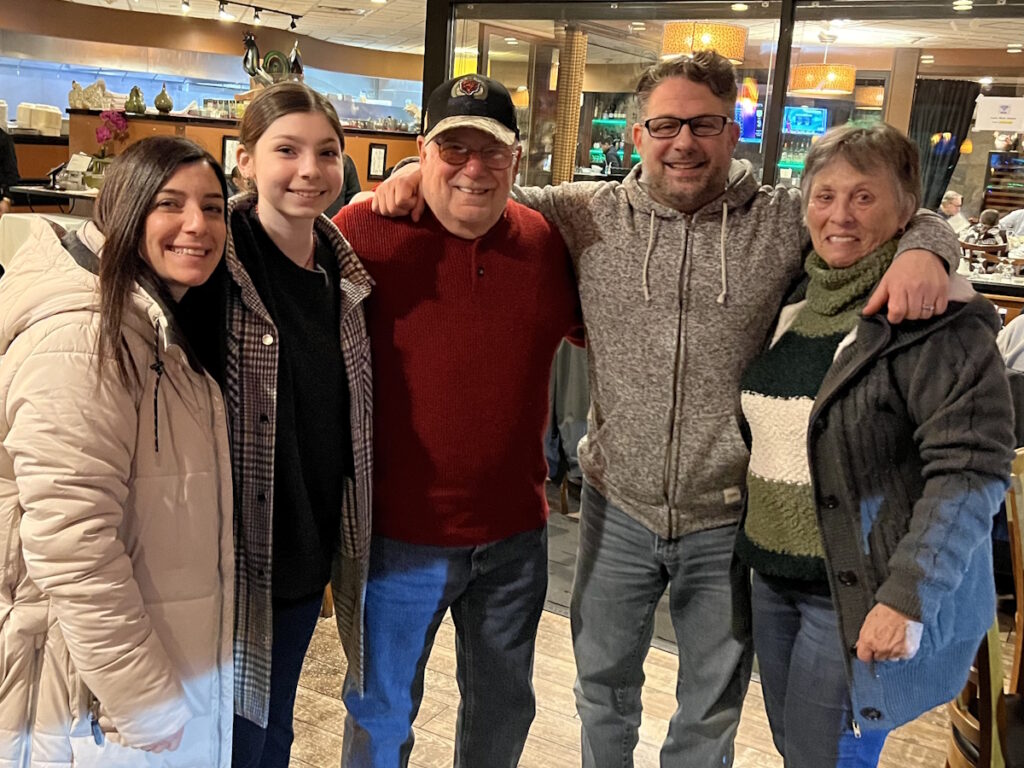
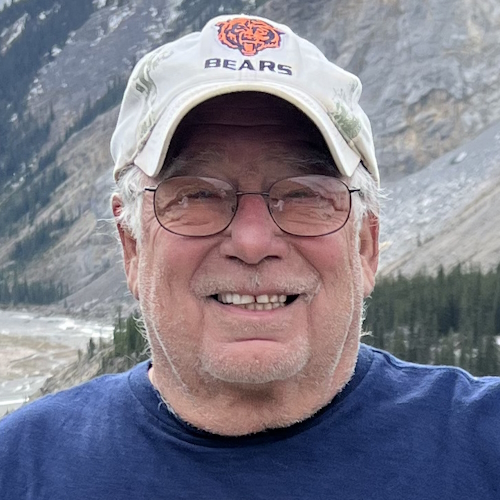
Inspired by Joseph's story?
Share your story, too!
More Myelofibrosis Stories
Stacy S.
Diagnosis: Myelofibrosis with CALR and ASXL1 mutations
Symptoms: Fatique, cold hands and feet
Treatment: Agrylin (for thrombocythemia), Ruxolitinib (Jakafi), Fedratinib (INREBIC), stem cell transplant
Mary L.
Diagnosis: Myelofibrosis (MPN)
1st Symptoms: Fatigue, extreme dizziness (later diagnosed as vertigo)
Treatment: Pegasys, hydroxyurea (current)
Jeremy S.
Diagnosis: Myeloproliferative Neoplasm (MPN), Polycythemia vera (PV) and Chronic Lymphocytic Leukemia (CLL)
Holly S.
Diagnosis: Primary myelofibrosis
Symptoms: Severe fatigue, throbbing pain in left calf, significant weight loss, itching and rashes, bruising, and shortness of breath
Treatment: Oral chemotherapy: hydroxyurea, Immunotherapy injections: peginterferon
Cathy T.
Diagnosis: Myelofibrosis
Symptoms: None; caught at a routine blood test
Treatment: Stem cell transplant

